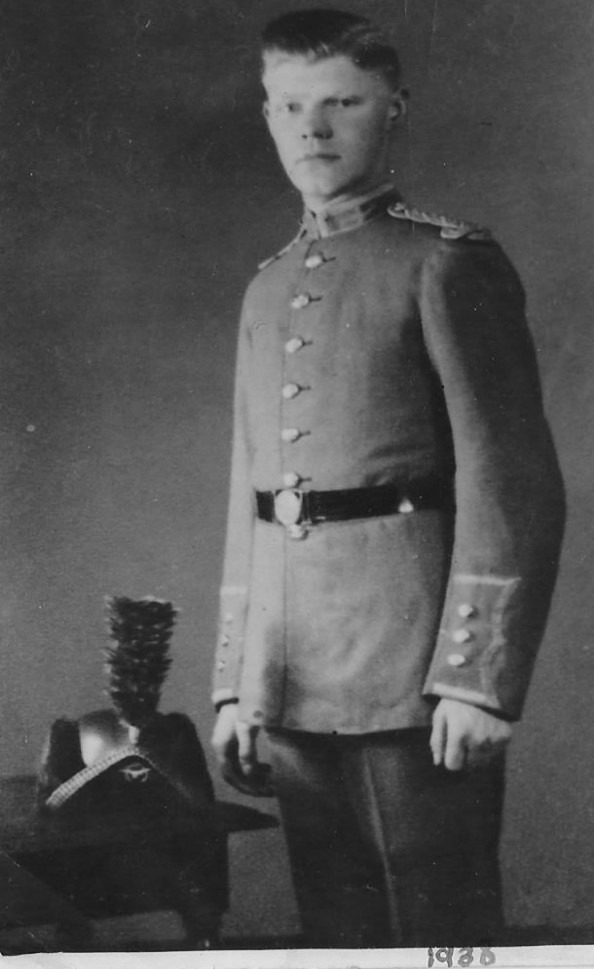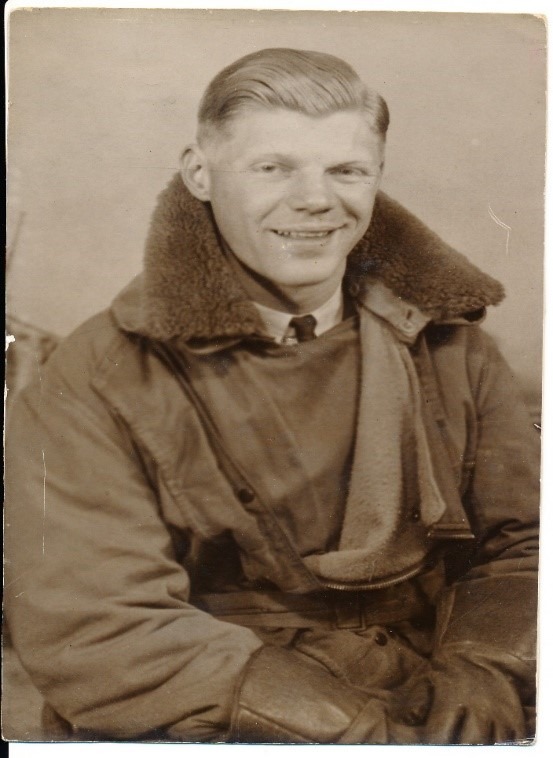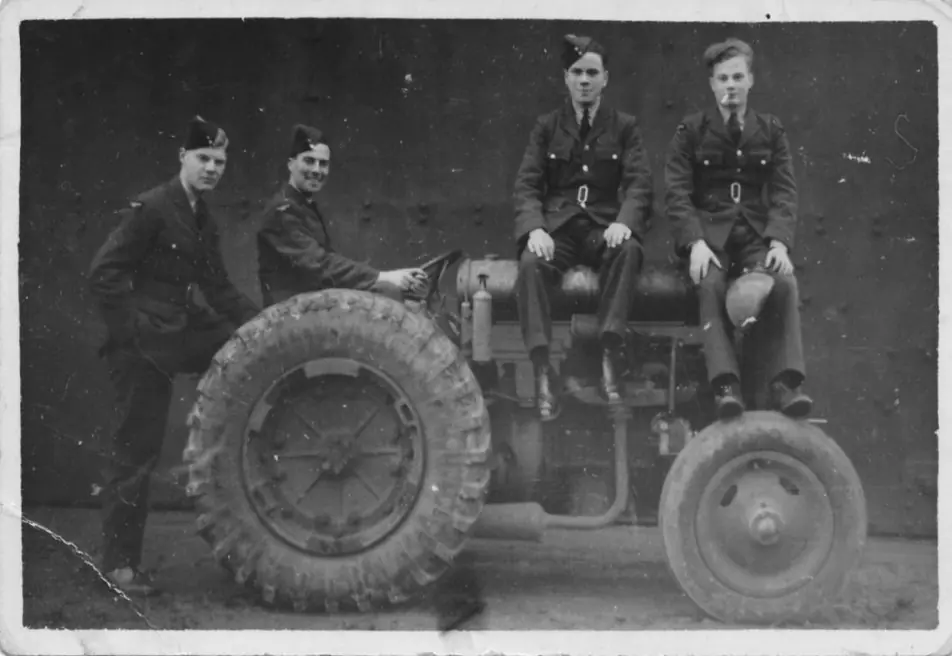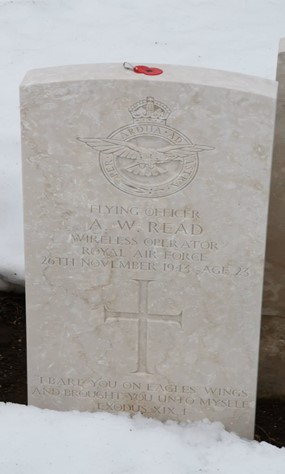
Flying Officer Aubrey William Read 50611
Stone 0012
Aubrey was born in Lincoln on 9th September 1920. His first job was as a sales clerk at the Clayton Dewandre Titanic Works in Lincoln. On June 7th, 1937, aged 16, he enlisted in the Territorial Army as a Bandsman with the Lincolnshire Regiment, playing the clarinet and saxophone.
Cranwell College Band 1938
In November 1938 (having just turned 18) he enlisted in the RAF, joining the Cranwell College Band. One of his references was from the Bandmaster of the Lincolnshire Regiment, who wrote: “I am pleased to say that he is the most promising pupil I have ever had”.
When war was declared Aubrey volunteered for aircrew and in February 1941 he was passed as medically fit for service by Air Support Command in Blackpool. From September to November 1942 he trained as a wireless operator at No. 2 Signals School at RAF Yatesbury, and from November 1942 to January 1943 he trained as an Air Gunner at No. 10 Air Gunnery School, RAF Walney, Barrow in Furness.
Now a qualified Wireless Operator/Air Gunner (WOp/AG) Aubrey joined 106 Squadron in June 1943 at RAF Syerston, and completed a total of 24 night operations, including raids on Cologne (June 16: a logbook note says “M/U Gunner U/S (frostbite)”), Hamburg (four times, on August 2nd he noted: “heavy electrical storm over target area – returned on 3 engines”), Milan (twice, each trip taking over eight hours) and the Peenemunde V-weapons base (August 17th).
Aubrey’s sister Bunty (my mother) remembered how he reassured his anxious parents by describing his pilot Flying Officer Jacques Hoboken: “Don’t worry, Hobo can get us out of anything”.
During a raid on Kassel on October 22nd Aubrey’s Lancaster was attacked twice by night fighters, several members of the crew were wounded and the aircraft “badly crippled”. With one fin and rudder shot away, no hydraulics or intercom, two punctured tyres, two turrets inoperable and only three engines working, they made their way back home, only to find they were unable to land at Syerston because of bad weather. The squadron record book records that eventually F/O Hoboken “executed a masterly landing” at an alternative airfield. It took more than an hour for the rear gunner to be cut free from his turret. For the “courage, resolution and devotion to duty of the highest order” displayed in “circumstances fraught with great danger” Hobo was awarded the DFC, and Flight Engineer Sergeant George Lucas the DFM.
In spite of that experience, the crew joined Bomber Command’s efforts targeting Berlin the following month, flying from the squadron’s new base at RAF Metheringham. They undertook three operations in quick succession on the 22nd, 23rd and 26th and it seems that Aubrey did not have time to record them in his logbook. The final entry on 26th November simply states “Bombing – Berlin. Failed to return”. It was eventually confirmed that their Lancaster had crashed at Gross-Karben, 11 miles north of Frankfurt.
Wing Commander Baxter, 106 Squadron Commanding Officer, wrote to Aubrey’s parents expressing his deep sympathy, and commented: “He was a Wireless Operator of considerable ability and I know his Captain placed the greatest reliance in his work”.
Aubrey is buried with his crew in the Commonwealth War Graves Commission cemetery at Durnbach. He was 23 years old.
We will remember them.
David Leitch 23/9/20
Sources
Family collection – will also be available in the IBCC Digital Archive
Service records: Forms 1406 and 543
London Gazette 16/11/43
IBCC Losses Database: https://losses.internationalbcc.co.uk/loss/119409/
The National Archive:
AIR 50-208-374 106 squadron Combat report 22/10/43
AIR 27-833-20 106 squadron ORB Oct 1943




